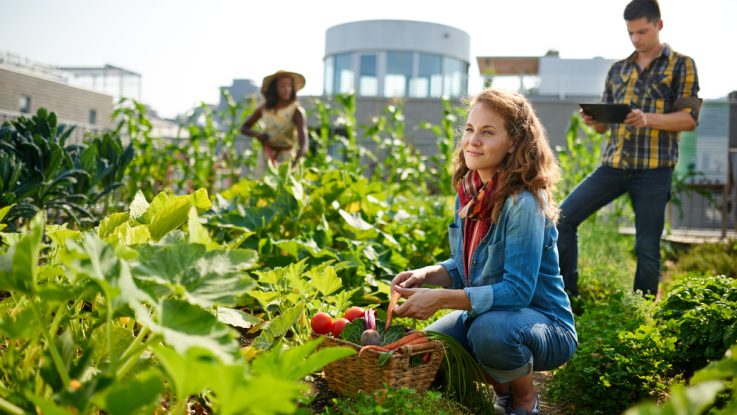
The Sustainable Agriculture Research and Education (SARE) program of The National Institute of Food and Agriculture (NIFA) recently released a bulletin, Best Practices for the Sustainable Urban Farm. The bulletin outlines strategies that urban farmers can use to address both the opportunities, and the challenges, associated with urban farming.
The bulletin provides an overview of the important issues for new farmers to consider for the establishment and management of an urban farm or community garden, and provides resources for finding more in-depth information.
The bulletin highlights the following issues:
- Land Access and Security – the steps in finding long-term, stable access to land for farming;
- Soil Remediation, Soil Health and Nutrient Management;
- Water Access and Management;
- Season Extension and Controlled Environments – getting the most out of the growing season using season extension strategies, such as greenhouses;
- Sustainable Pest Management;
- Aquaponics and Hydroponics;
- Marketing; and
- Nonprofit Versus For-Profit Urban Farms and Farmer Training programs.
“Sustainable agriculture in both urban and rural areas is a NIFA priority,” said Dr. Vance Owens, NIFA’s national program leader for SARE. “Since 1988, SARE has guided more than 8,500 projects with funding support of about $389 million from NIFA. These projects cover a wide range of topics, including on-farm renewable energy, pest and weed management, cover crops, high tunnel and session extension, marketing, sustainable communities, and local and regional food systems.”
NIFA is one of four agencies that make up the USDA’s Research, Education, and Economics (REE) mission area. It supports research, education, and extension activities through three mechanisms – competitive grants, formula grants, and non-competitive grants. SARE operates in four regions (North Central, Northeast, South and West) with each regional program hosted by land-grant institutions.